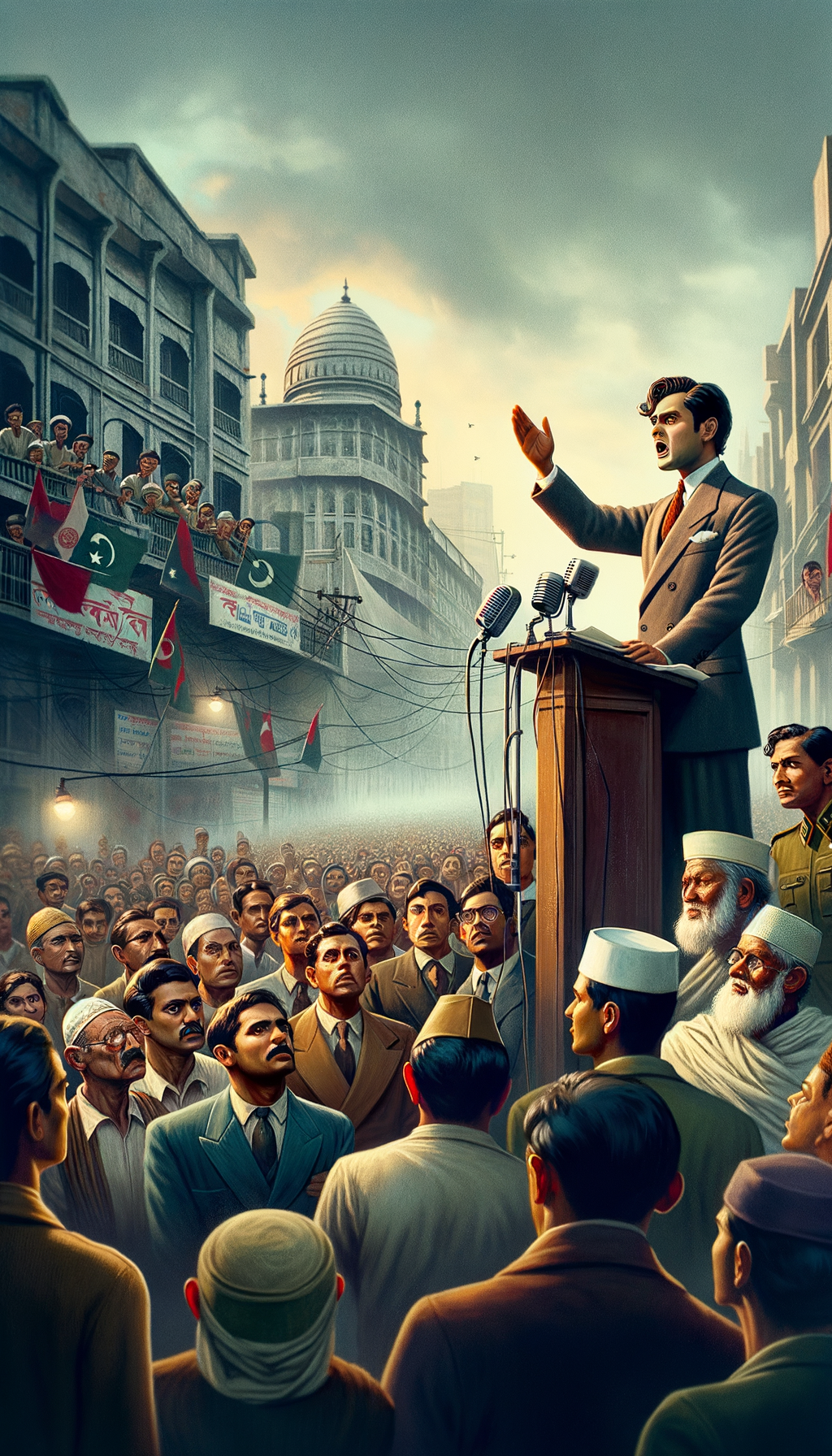Bangladesh – The Dawn of a Nation: Bangladesh's Fight for Freedom, 1971
TLDR;
- Event: On March 26, 1971, Sheikh Mujibur Rahman declared the independence of Bangladesh from Pakistan, sparking a nine-month liberation war.
- Significance: The conflict arose from long-standing economic and political grievances, exacerbated by the Pakistani military’s crackdown following the 1970 elections.
- Outcome: With India’s support, Bangladesh achieved victory on December 16, 1971, leading to the surrender of Pakistani forces and the establishment of Bangladesh as a sovereign nation.
- Impact: The war resulted in millions of casualties and widespread devastation, but it also marked the birth of a new nation driven by the spirit of self-determination.
–
Story
In the early hours of March 26, 1971, the air in Dhaka was thick with tension and the scent of revolution. Before his arrest, Sheikh Mujibur Rahman declared the birth of a new nation—Bangladesh. This was not just a proclamation; it was a call to arms, a beacon of hope for millions yearning for freedom from the oppressive rule of Pakistan. Later, on March 27, Major Ziaur Rahman read the declaration on behalf of Sheikh Mujibur Rahman over the radio.

The seeds of this historic moment were sown in the fertile grounds of cultural and political discontent. For years, the people of East Pakistan, now Bangladesh, had suffered under the weight of economic disparity and political marginalization imposed by the West Pakistani government. The 1970 general elections, which saw the Awami League win a landslide victory, were supposed to herald change. Instead, they ignited a brutal crackdown by the Pakistani military, leading to widespread atrocities.
The declaration of independence was a turning point, transforming simmering unrest into a full-scale liberation war. Although Sheikh Mujibur Rahman, the leader of the Awami League and the political figurehead of the independence movement, was imprisoned in West Pakistan for most of the conflict, the people of Bangladesh took up arms, fueled by a fierce desire for self-determination. The ensuing nine-month conflict was marked by immense sacrifice and resilience, as ordinary citizens became soldiers, and the land itself became a battlefield.
By December 16, 1971, with the support of India, the tide turned decisively in favor of the Bangladeshi forces. The Pakistani military surrendered, and Bangladesh emerged from the ashes of war as a sovereign nation. The cost was staggering—millions of lives lost, families torn apart, and a country left to rebuild from the ruins.
Yet, from this crucible of conflict, a new nation was born, its spirit unbroken and its future unwritten.
–
| Would a different approach to the 1970 elections have changed the course of history for Bangladesh? |